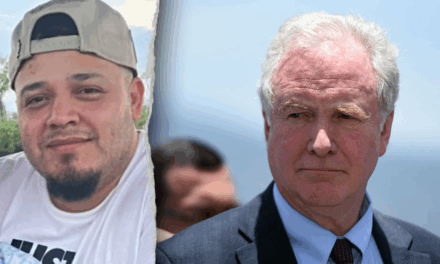In the upcoming week, a pivotal meeting is scheduled to take place among Republican leaders in Washington as they prepare to select a successor to the highly influential Senate Republican Leader, Mitch McConnell. This significant gathering is planned for Wednesday and will be conducted behind closed doors, with the objective of deliberating on McConnell’s potential successor and discussing the future direction of the party’s leadership in the Senate.
Mitch McConnell, a seasoned political operator, has been at the helm of the Senate Republicans for a substantial period, guiding the party through numerous legislative battles and political strategies. His tenure has been marked by a focus on conservative values and judicial appointments, as well as a strategic approach to legislative negotiations. However, as he approaches the latter stages of his career, the Republicans find themselves at a critical juncture, needing to elect someone capable of navigating the complexities of the current political landscape and leading the party effectively in the Senate.
The decision to meet privately underscores the sensitivity and importance of this leadership transition. The choice of a new leader will have far-reaching implications, not only for the Republicans but also for the overall dynamics within the Senate. The role of Senate Republican Leader is pivotal, involving not only the stewardship of legislative priorities but also setting strategic directions for the party.
Several names have been circulating as potential candidates to succeed McConnell. Each candidate brings a distinct set of experiences and visions that could significantly shape the party’s approach and interactions within the wider political arena. Among these potential successors are seasoned senators who have carved out reputations as influential voices in the party. The selection process is expected to be intense, with discussions likely to revolve around key issues such as legislative strategy, party unity, and the Republican agenda.
As they gather to deliberate, the Republican leaders know that the selection of a successor is not merely a procedural exercise. The new leader will need to contend with a variety of pressing challenges that are currently dominating the political landscape. Among them are the pressing issues of national security, healthcare, economic policies, and the ongoing negotiations on various critical legislation. Additionally, the leader will need to navigate intra-party dynamics, balancing the interests of different factions within the party to maintain cohesion and effectiveness.
Furthermore, the incoming leader will have to strategize on how to position the Republican party for future electoral successes, including the upcoming midterm elections and the 2024 presidential race. The ability to craft a compelling vision and communicate effectively with the electorate will be crucial components of their leadership.
The challenges of selecting McConnell’s successor come at a time when the political climate is highly polarized, and public sentiment is often divided on key issues. As a result, the choice of a new leader might also influence how the Republican party is perceived by the public and its ability to broaden its appeal to a wider demographic.
With the future of the Republican party at stake, the decision is weighted with both opportunities and responsibilities. As Wednesday approaches, the anticipation grows regarding who will emerge as the new face of Senate Republican leadership, equipped to guide the party through the complexities of current and future political challenges.
Although McConnell has not formally announced his retirement date, the internal preparations and discussions signal a proactive approach by the Republicans to ensure a seamless transition when the time comes. Speculations surround what McConnell’s post-leadership involvement might look like, given his vast experience and influence.
The legacy of Mitch McConnell is undeniably profound. His tenure as a strategist and leader has reshaped the Republican presence within the Senate significantly. The outcomes of Wednesday’s meeting will also determine how the Republican party plans to leverage his accomplishments while charting a new path forward.
As the nation awaits the decisions made behind the closed doors of this critical meeting, the future leader will be tasked with taking the baton from McConnell and leading the Republicans with conviction and vision. Whether the yet-to-be-determined leader will choose to follow closely in McConnell’s footsteps or embark on a new trajectory will be pivotal for the party’s direction and influence in the Senate.
































